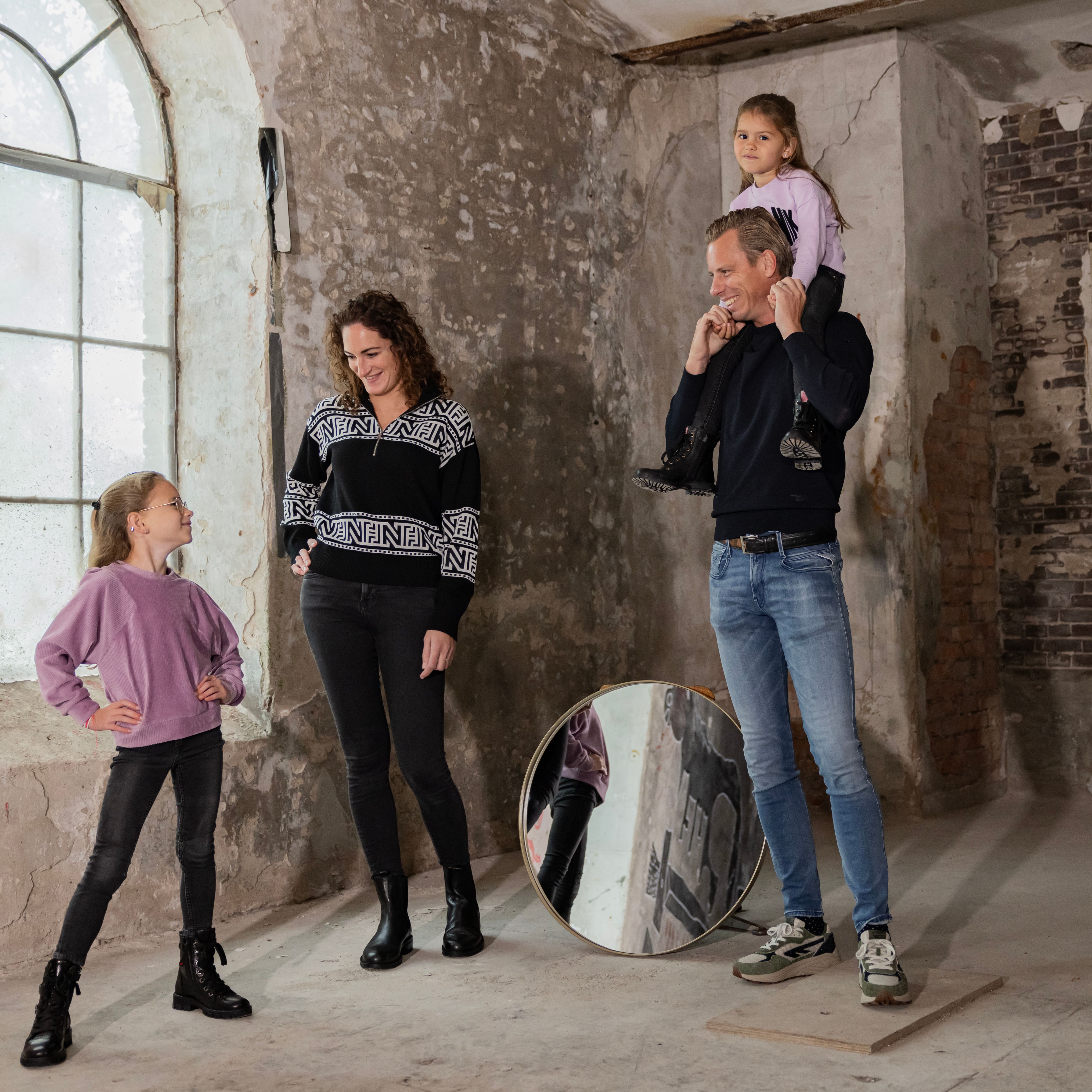Our Offer
Centrum Hecht Training: Our Offer
Centrum Hecht Opleidingen consists of a close-knit team of enthusiastic trainers. We have been working together in various ways for quite some time now. We are now joining forces in a joint training centre. Because we believe in a personal approach in which connection and trust are the foundation.
MBT-A is a treatment approach for working with adolescents with a wide range of interpersonal problems, emotional dysregulation, impulsivity and self-harm. MBT-A combines individual weekly sessions for adolescents with mentalizing-enhancing family therapy sessions (MBT-F) and/or MBT-A group therapy. The approach aims to increase adolescents' ability to continue to experience and represent their own and others' feelings and thoughts accurately and in emotionally challenging situations. MBT-A has been scientifically proven effective in reducing self-harm and depressive symptoms in adolescents (Rossouw & Fonagy 2012).
Start date: Mar 18, 26
Mentalizing Based Treatment with Children (MBT-C) is a model for working with children in the latency years (ages 4-12) and their parents. MBT-C is a psychoanalytic integrative approach that combines psychodynamic principles with findings from attachment and affect regulation theory, systemic family therapy and empirical research. MBT-C is transdiagnostic and suitable for addressing a range of problems, including emotional and behavioral problems, anxiety, trauma, depression and attachment problems.
Start date: Oct 13, 25
Mentalization based treatment for Families (MBT-F) is a systemic treatment aimed at (re)starting mentalizing within families and partner relationships. This improves the quality of mutual relationships. The basis lies in the explicit or implicit feeling of psychological connection with another person, which allows family members to feel seen, understood and loved. The harmful effects of conflict (divorce) on children has been exhaustively described. Treatment in clinical practice is often extremely difficult. Social workers sometimes get caught up in conflict themselves or see minimal effects of their interventions. A mentalizing-promoting therapy framework can provide tools for diagnosis, motivation and treatment in situations such as: - chronic conflicts between divorced parents over dealing with each other, living situation and dealing with the children - a long-term history of ongoing negative lawsuits and accusations by both parents about the quality of parenting or in cases of parental repudiation the desire to intervene early to protect the child/children and to reduce the impact of litigation on interpersonal relationships.
Start date: Nov 19, 26
MBT-C and Trauma focuses on children who have had long-term exposure to relational trauma such as physical abuse, sexual abuse, domestic violence and emotional neglect, sometimes in conjunction with adoption or placement in foster care.
Start date: t.b.a
MBT-C and Trauma focuses on children who have had long-term exposure to relational trauma such as physical abuse, sexual abuse, domestic violence and emotional neglect, sometimes in conjunction with adoption or placement in foster care.
Start date: Oct 30, 25
MBT-F is a systemic treatment aimed at (re)starting mentalizing within families and partner relationships. This improves the quality of mutual relationships. The basis lies in the explicit or implicit feeling of psychological connection with another person, which allows family members to feel seen, understood and loved. It strengthens mutual trust and enables the family to find solutions to life problems (empowerment) on their own (again). MBT-F is an integrative approach that brings together psychodynamic principles, systemic theory, CBT practices and a social ecological framework to understand and support families. It is a flexible and time-limited approach, to be used in a variety of settings with families experiencing difficulties such as emotional and behavioral problems, anxiety, depression, relational problems and family conflict.
Start date: t.b.a
MBT-F is a systemic treatment aimed at (re)starting mentalizing within families and partner relationships. This improves the quality of mutual relationships. The basis lies in the explicit or implicit feeling of psychological connection with another person, which allows family members to feel seen, understood and loved. It strengthens mutual trust and enables the family to find solutions to life problems (empowerment) on their own (again). MBT-F is an integrative approach that brings together psychodynamic principles, systemic theory, CBT practices and a social ecological framework to understand and support families. It is a flexible and time-limited approach, to be used in a variety of settings with families experiencing difficulties such as emotional and behavioral problems, anxiety, depression, relational problems and family conflict.
Start date: t.b.a
Relationships with others, in addition to individual characteristics and environmental factors, are decisive for the development of each person. Infant Mental Health (IMH), which can be understood as a life course view, offers an overarching perspective on a child's developmental course from different disciplines, theoretical and methodical directions. It makes visible that each family system and situation is unique and can have an ever-changing "port of entry. The first relationships in a human life, especially those of child and parents, lay a foundation for the rest of life. IMH therefore wants to pay attention to the quality of those relationships as early as possible. Mentalizing is an essential element in this. Learning to mentalize begins right at birth and is a foundation for the strength of (family) systems.
Start date: Mar 17, 26
Embodied mentalizing is being present and communicating without words. Especially in the treatment of young people with personality problems, traumatic attachment and early childhood traumatization is an essential part of therapy. Growing up in unsafe and traumatic relationships, they have experienced that protection, soothing, comfort and affection fell short. Listening to physical cues, becoming familiar and dealing with their own emotions and those of others has been disrupted as a result. Applying theory about early childhood trauma in a variety of work formats can create a more compassionate view of one's self and initiate processing and recovery. The approach can be applied in groups, families and individual therapy.
Start date: Mar 11, 26
Saara wil teach about a short-term and low-threshold intervention aimed at developing and strengthening a positive and close bond between parent(s) and child, developed by Finnish clinical psychologist Saara Salo and her colleagues. The approach is based on a combination of Theraplay and mentalizing promoting therapy for families (MBT-F). Weaving play into family sessions creates another entry point for curiosity, attunement, connection and mutual understanding. For parents, the here and now offers experiences in practicing bounding, structuring, attunement, subtitling and repairing breaks in mentalizing. There are reciprocal activities with a focus on synchronizing, mirroring and explicit mentalizing. Reflective video feedback with parents reinforces the learning process. These playfull interventions can be delivered to a single parent-child dyad, a family or in a group. The intervention is typically conducted with expectant parents and parents/caregivers of children ages 0 to 12.
Start date: Dec 08, 25
Frequently Asked Questions
How do I register for a course?
You can do that online. Under the course you want to take, click the register button. You will then be linked to an application form. You will receive an automatic confirmation email once you have submitted your registration and will receive an invoice via email. We then check that you meet the conditions of participation. Registration is final when you meet the conditions and you have paid the invoice. About six weeks before the course start date, you will hear whether the course will definitely continue.

